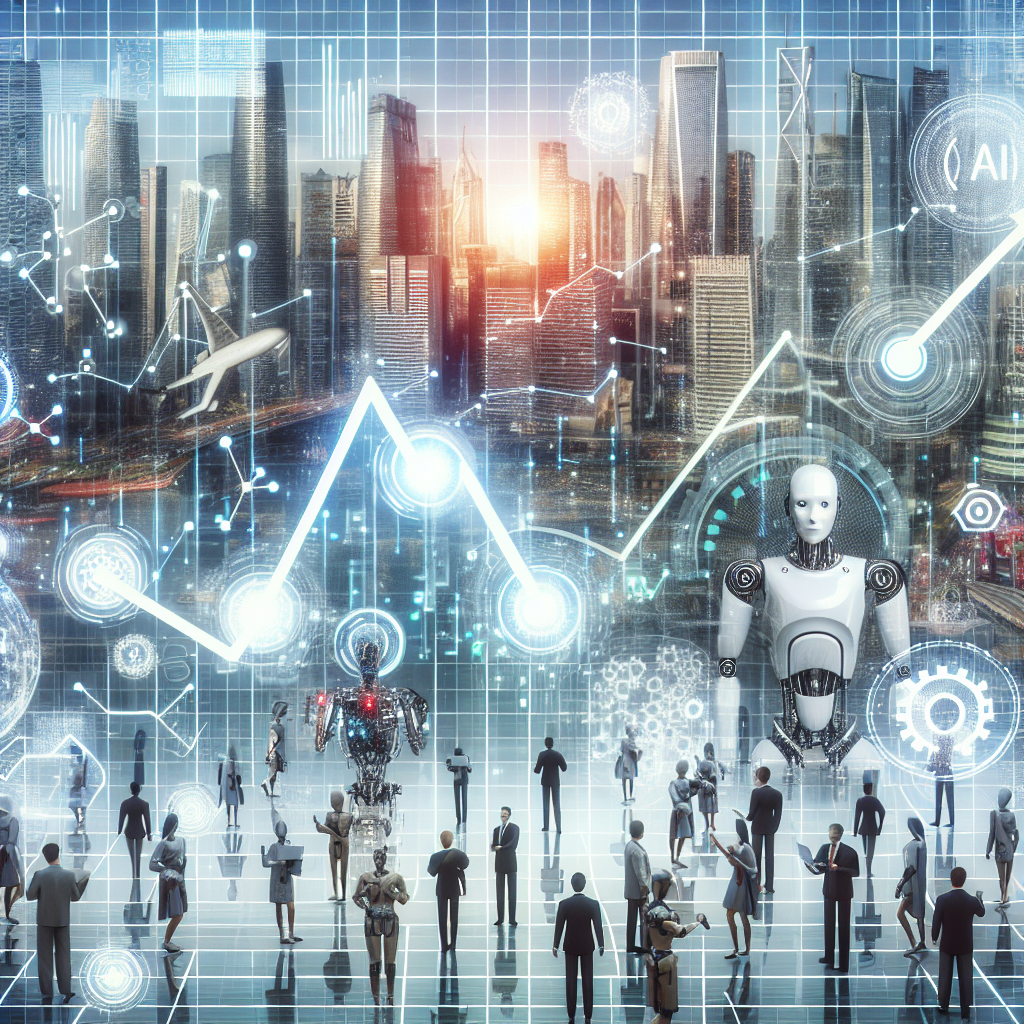The Impact of Artificial General Intelligence on Society: Opportunities and Challenges Ahead
Artificial General Intelligence (AGI) refers to the development of machines that possess the ability to perform any intellectual task that a human can do. While we are still far from achieving true AGI, the rapid advancements in the field of artificial intelligence (AI) have raised concerns about the potential impact of AGI on society. In this article, we will explore the opportunities and challenges that AGI presents to society, and discuss how we can prepare for the future.
Opportunities of AGI
1. Increased efficiency and productivity: One of the main advantages of AGI is its potential to revolutionize industries by increasing efficiency and productivity. AGI-powered systems can perform tasks faster and more accurately than humans, leading to significant cost savings and improved output.
2. Improved healthcare: AGI has the potential to greatly enhance healthcare by providing more accurate diagnoses, personalized treatment plans, and drug discovery. This can lead to better patient outcomes and reduced healthcare costs.
3. Enhanced decision-making: AGI can help us make better decisions by analyzing vast amounts of data and identifying patterns that humans may overlook. This can be particularly beneficial in areas such as finance, law enforcement, and disaster response.
4. Innovation and creativity: AGI can inspire new ideas and innovations by simulating human-like creative processes. This can lead to breakthroughs in technology, art, and other fields.
Challenges of AGI
1. Job displacement: One of the biggest concerns surrounding AGI is the potential for job displacement as machines take over tasks traditionally performed by humans. This could lead to mass unemployment and economic disruption if not properly managed.
2. Ethical concerns: AGI raises ethical questions about the impact of AI on society, such as privacy, bias, and accountability. There are also concerns about the potential misuse of AGI for malicious purposes, such as autonomous weapons.
3. Control and regulation: AGI systems have the potential to make decisions autonomously, raising questions about who is responsible for their actions. There is a need for robust regulation and oversight to ensure that AGI is developed and used responsibly.
4. Inequality: AGI has the potential to exacerbate existing social inequalities by widening the gap between those who have access to the technology and those who do not. This could lead to disparities in education, employment, and wealth.
Preparing for the Future
As we continue to advance in the field of AI and work towards achieving AGI, it is important to consider the potential impact of this technology on society. Here are some ways we can prepare for the future:
1. Invest in education and training: As jobs evolve and new skills become essential, it is crucial to invest in education and training programs to prepare individuals for the changing workforce.
2. Foster collaboration between humans and machines: Rather than viewing AGI as a threat, we should embrace it as a tool to enhance human capabilities. By working together with AGI systems, we can achieve greater outcomes than either could alone.
3. Develop ethical guidelines and regulations: Governments, industry leaders, and researchers should work together to develop ethical guidelines and regulations for the development and use of AGI. This will help ensure that AGI is used responsibly and ethically.
4. Promote diversity and inclusivity: To address concerns about inequality, it is important to promote diversity and inclusivity in the field of AI. By ensuring that diverse voices are represented in the development of AGI, we can create technology that benefits everyone.
FAQs
Q: What is the difference between AGI and narrow AI?
A: Narrow AI refers to AI systems that are designed to perform specific tasks, such as image recognition or language translation. AGI, on the other hand, is a hypothetical AI system that can perform any intellectual task that a human can do.
Q: When will we achieve AGI?
A: While there is no definitive timeline for achieving AGI, many experts believe that we are still several decades away from developing true AGI. The development of AGI is a complex and challenging task that requires significant advancements in AI research.
Q: What are the potential risks of AGI?
A: Some of the potential risks of AGI include job displacement, ethical concerns, control and regulation issues, and social inequality. It is important to address these risks proactively to ensure that AGI is developed and used responsibly.
Q: How can individuals prepare for the impact of AGI on society?
A: Individuals can prepare for the impact of AGI by staying informed about the latest developments in AI, acquiring new skills and knowledge, and advocating for ethical and responsible AI development. It is also important to engage in discussions about the potential impact of AGI on society and work towards solutions that benefit everyone.
In conclusion, AGI has the potential to bring about significant opportunities and challenges for society. By preparing for the future and addressing the risks associated with AGI, we can ensure that this technology benefits humanity as a whole. It is important for governments, industry leaders, and individuals to work together to shape the future of AGI in a way that is ethical, inclusive, and beneficial for all.

